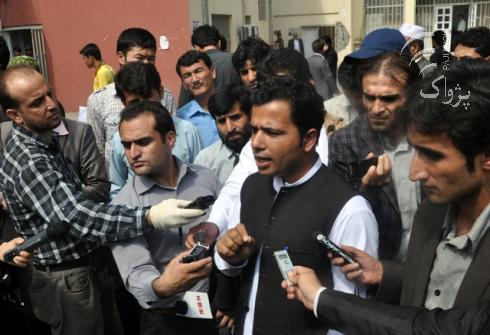Journalists in Afghanistan have refused to report the national parliament in protest over a media pool which they say censors their ability to cover what is happening.
Radio, television and print journalists have boycotted reporting any news from the national parliament, called the Wolesi Jirga, since the introduction of a new ‘media pool.’ Previously, reporters could access the parliamentary gallery to see first hand what was happening. Since the installation of the state of the art audio and video feed system, they are now housed in another hall where a tv feed is made available.
While such systems are not uncommon in many countries, the journalists’ complaint is about how it is used.
On August 4th, when the Defence and Interior ministers were impeached and arguments broke out, access to the assembly’s feed was cut and the reporters could not record the progress of the argument or broadcast its results.
Afghan news agency Pajhwok also reported a second incident last week when a representative from Kabul “exchanged hot words with the second deputy speaker” and the technical crew switched off the tv at the newly set up hall, denying reporters the chance to hear what remarks the MP was making. As he spoke, the lawmaker’s microphone was disconnected and technical personnel stopped screening his photograph, according to the newswire service.
Speaking publicly after the incident, Pajhwok Afghan News reporter Abasin Zaheer (pictured) said on behalf of his colleagues, if the Wolesi Jirga did not resolve the issue of censorship by Monday, journalists would press on with their protest.
Under the Afghan constitution, national assembly sessions are open to media professionals, but the house can go for in-camera proceedings if there is a request from the speaker or at least 10 MPs. There is no constitutional basis for disconnecting a live feed of the parliamentary chamber.

